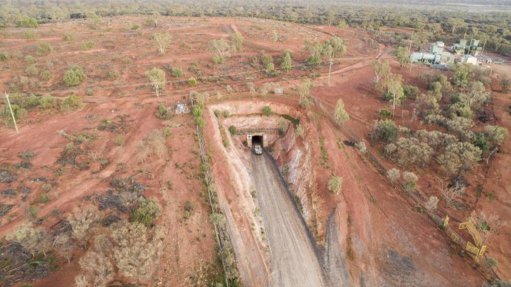Consultants equipped to help develop education infrastructure

MONTY DITIBANE We have a vast set of knowledge and expertise in building schools, and we interpret what the Constitution specifies as requirements for education infrastructure
Infrastructure consulting business DBI Consulting can support the delivery of key infrastructure for education institutions and facilities.
“A skilled and educated workforce serves as a key component of a prosperous country. We cannot expect this economy to grow without significant investment in education as a system, and particularly education infrastructure at the facility level,” says DBI Consulting director Monty Ditibane.
The standards promulgated by the Department of Basic Education for education facilities ensure that key deliverables of government in terms of education are achieved.
He adds that these key deliverables are in addition to constitutional requirements from government contained in the Immovable Asset Management Act No. 19 of 2007, and are anchored on the infrastructure delivery management system process.
The Act provides a uniform framework for the management of an immovable asset that is held or used by a national or provincial government department. It also ensures the coordination of the use of an immovable asset with the service delivery objectives of a national or provincial department.
DBI Consulting’s ability to deliver education infrastructure lies in its capacity to conduct feasibility studies, condition assessments on existing infrastructure, and aligning these factors to key deliverables for education.
“We understand these necessary steps and processes to deliver education infrastructure. We assess the facilities in terms of performance, and then we put together costs to rectify or replace when replacement costs are necessary.”
Ditibane highlights that South Africa is a developing nation and, therefore, education infrastructure is “highly specialised” in terms of how this infrastructure is procured and built.
“We have a vast set of knowledge and expertise in building schools. We interpret what the Constitution specifies in terms of the standards and technical requirements for education infrastructure. We conduct running audits, project portfolios and programme management related to education infrastructure delivery.”
Megaschool Projects
Ditibane states that DBI Consulting is often involved in educational infrastructure projects in the Free State, and these mostly include building and fixing educational facilities.
These facilities are also referred to as “megaschools”, and were built in the 1960s and 1970s with a combination of hazardous asbestos materials and concrete, he points out.
“With asbestos having been outlawed and declared a hazardous material, we are involved in the redesign of these schools using appropriate building materials. This includes schools with an intake of about 1 000 learners at a time. We are involved in five of those schools in the Free State currently, with the Development Bank of Southern Africa as our implementing agent.”
DBI Consulting is also involved in the redesign of schools in Limpopo, North West and the Eastern Cape for the Department of Public Works and Infrastructure.
Ditibane notes that, owing to the company’s experience in these educational infrastructure projects, it has developed efficient models of delivery for these projects.
These models assist in acquiring technology that enables DBI Consulting to deliver these projects at a cheaper rate than its competitors.
“These models include the deployment of technologies such as drones, which help with survey information. We also have a strong geographic information system (GIS) engine and a coordinated system of delivery that is anchored in our ISO 9001-certified systems.”
These models of delivery enable DBI Consulting to have a readily available supply of information, which is then refined through site visits to confirm the accuracy of site information.
“Education infrastructure project delivery can be done for a reasonable amount of money. Government hasn’t engaged the construction industry, or services providers such as us, to understand how we can incorporate best-in-breed technologies and processes that are aligned with the Public Finance Management Act of 1999, and the requirements of the Auditor-General of South Africa.”
Sanitation Projects
Ditibane points out that DBI Consulting has been regularly involved in sanitation projects for education facilities, in collaboration with nonprofit organisation (NPO) Water Aid, for the past three years.
Water Aid funded these sanitation projects, while project management and technical services were rendered by NPO Tsogang and DBI Consortium.
These projects have been delivered in the Vhembe, Capricorn and Sekhukhune district municipalities, in Limpopo. DBI Consulting has been allocated and had to complete about six schools for each year in this time.
Ditibane adds that planning for these projects would often involve conducting a geotechnical investigation, as well as a geohydrological investigation for borehole sitings and equipping.
DBI Consulting would then conduct the rollout and close of the sanitation project, as such a project would often take about six months to complete.
“We run a competitive supply chain that subscribes to Section 217 of the Constitution in terms of fairness and procurement. We also implement these projects as community-based projects, as we use local contractors to supply materials and labour,” he concludes.
Comments
Press Office
Announcements
What's On
Subscribe to improve your user experience...
Option 1 (equivalent of R125 a month):
Receive a weekly copy of Creamer Media's Engineering News & Mining Weekly magazine
(print copy for those in South Africa and e-magazine for those outside of South Africa)
Receive daily email newsletters
Access to full search results
Access archive of magazine back copies
Access to Projects in Progress
Access to ONE Research Report of your choice in PDF format
Option 2 (equivalent of R375 a month):
All benefits from Option 1
PLUS
Access to Creamer Media's Research Channel Africa for ALL Research Reports, in PDF format, on various industrial and mining sectors
including Electricity; Water; Energy Transition; Hydrogen; Roads, Rail and Ports; Coal; Gold; Platinum; Battery Metals; etc.
Already a subscriber?
Forgotten your password?
Receive weekly copy of Creamer Media's Engineering News & Mining Weekly magazine (print copy for those in South Africa and e-magazine for those outside of South Africa)
➕
Recieve daily email newsletters
➕
Access to full search results
➕
Access archive of magazine back copies
➕
Access to Projects in Progress
➕
Access to ONE Research Report of your choice in PDF format
RESEARCH CHANNEL AFRICA
R4500 (equivalent of R375 a month)
SUBSCRIBEAll benefits from Option 1
➕
Access to Creamer Media's Research Channel Africa for ALL Research Reports on various industrial and mining sectors, in PDF format, including on:
Electricity
➕
Water
➕
Energy Transition
➕
Hydrogen
➕
Roads, Rail and Ports
➕
Coal
➕
Gold
➕
Platinum
➕
Battery Metals
➕
etc.
Receive all benefits from Option 1 or Option 2 delivered to numerous people at your company
➕
Multiple User names and Passwords for simultaneous log-ins
➕
Intranet integration access to all in your organisation


















